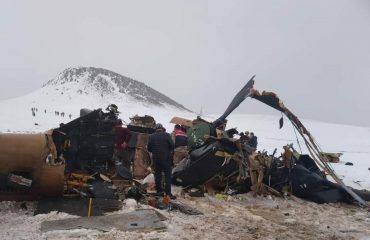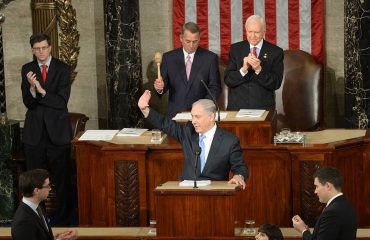

Ankara was happy with a good meeting with Libyan Prime Minister Abdul Hamid Mohammed Dbeibeh but the bad news came from Russia. The first thing that Libya would remind Turkish citizens nowadays might be President Tayyip Erdoğan’s 150,000 doses of vaccine to the North African country at a time when the daily new Covid-19 cases exceed 50,000 at home.
The 150,000 doses do not mean much for both countries but this symbolic gesture to Libya has negative connotations for the Turkish citizens. The overcrowded ruling Justice and Development (AKP) congresses are still fresh in the memories of the people. Still, this is not what this article will address.
Libyan PM Dbeibeh returned from Ankara, the Turkish capital that he visited with his entire cabinet on April 12, with five agreements in his briefcase beside the vaccine. Accordingly, Turkey will build four power stations in Libya, in addition to an airport passenger terminal and a shopping mall in Tripoli. These are the obvious side of the relations. We do not know about the military or oil deals yet.
Libya, Egypt, Greece
The rewards of Erdoğan’s support for the government stuck in the capital Tripoli against the rebel forces two years ago have exceeded the costs, despite all the risks.
The head of the rebels, Caliph Haftar, was supported by a broad coalition that includes various countries including Egypt, the United Arab Emirates, Russia, Greece and France. A turning point that the Sarraj forces shifted from defense to attack was when they reclaimed the Tripoli airport after neutralizing the Russian Pantsir air defense missiles thanks to the TB-armed UAVs received from Turkey. Just before Haftar lost the battle, Russia and France asked for a cease-fire. When the UAE, the financial supporter of Haftar, withdrew under U.S. pressure, a compromise was reached, a new government and a new Presidential Council were established.
A recent incident summarizes the situation: Greek Prime Minister Kyriakos Mitsotakis visited Libyan PM Dbeibeh and Presidential Council head Mohamed Yunus al-Menfi on April 6. Last year, Mitsotakis sent al-Menfi from Athens, declaring him “persona non grata,” an unwanted person, because he was loyal to the Tripoli government, which had appointed him as ambassador to Athens. Mitsotakis asked Tripoli the annulment of the maritime jurisdiction zones deal with Turkey but he returned empty-handed to Athens.
End of Erdoğan’s Egypt policy
Meanwhile, it was announced that Turkey had started negotiations with Egypt. During the reconciliation process in Libya, the contact between the intelligence organizations of the two countries turned into political negotiations through foreign ministries.
The Turkey-Egypt relations were broken in 2013 when Egypt’s Muslim Brotherhood member elected President Mohammed Mursi was toppled by Chief of Staff Abdulfettah al–Sisi with a Saudi-supported coup that was discretely approved by the U.S.
At a time when Greece protested Egypt for getting closer to Turkey, Saudi-backed newspaper al Arabia claimed that “Egypt, refused to negotiate with Turkey,” news that caused a stir. However, right after this news was published it was announced on April 10 that Egyptian Foreign Minister Sameh Shoukry and Turkish Foreign Minister Mevlüt Çavuşoğlu had their first meeting on the phone. Çavuşoğlu had called Shoukry for “Ramadan greeting”. It has not been announced whether Çavuşoğlu has called other Muslim countries for Ramadan greetings. The next day, Shoukry told the Egyptian press that messages from Turkey were satisfying. It was known that Egypt’s demands from Turkey included an end to insults on al-Sisi by the oppositional Egyptian media broadcasting from Turkey.
It is also known for some time now that both the Foreign and Defense ministries of Turkey want to mend ties with Egypt (and Israel) for the sake of political, military and economic balances in the Eastern Mediterranean. The current situation can be interpreted as an end to Erdoğan’s ideology-focused Egypt policy for the benefit of Turkey.
Bad news from Russia
On April 10, when the Çavuşoğlu and Shouky spoke on the phone, Erdoğan met with Ukraine President Volodymyr Zelensky in Istanbul. He had spoken to Russian President Vladimir Putin on the phone the day before. The content of the meeting was not limited to the Ukraine-Russia tension, the U.S. warships that will enter the Black Sea, and the Montreux Convention on the Dardanelles and Bosphorus straits, and Kanal Istanbul, the Turkish government plan to build an artificial water to connect the Black Sea to the inner Marmara Sea. Erdoğan’s extremely late demand from Russia for Sputnik-V vaccine and for the continuation of Russian tourist flow to Turkey were also discussed.
President Spokesperson İbrahim Kalın asked for “the problems between Russia and Ukraine to be resolved through negotiations” on April 11, adding that “Any tension and conflict in the Black Sea and the region would harm everyone.” Ankara believed that Erdoğan’s phone talk with Putin would help Russia “understand” Erdoğan.
However, just as Erdogan met with the Libyan delegation, a strong statement came from Russian Foreign Minister Sergei Lavrov, who was in Cairo at that time. He was meeting with al-Sisi and Shoukry. He advised Ankara to “refrain from encouraging militarist tendencies in Kiev,” when asked by a journalist about Turkey’s sale of TB-2 unmanned aircraft to Ukraine.
Soon after, it was heard that Russia limited flights to Turkey to twice a week.
Russia pulls the tourist card again
So it is seen that the struggle in international politics is heating up. Turkey wants to open more space for itself in the post-pandemic world order.
Ankara’s policy of flirting with Moscow when problems arise with Washington is not a tactic invented by Erdoğan. It was used by former prime minister Adnan Menderes in the 1950s, then-prime minister İsmet İnönü in the 1960s, then-prime minister Süleyman Demirel in the 1970s, and then-prime minister Turgut Özal in the 1980s. Erdoğan decided to take this policy one step further through very special relations with Putin after the 15 July 2016 military coup attempt. He purchased Russian S-400 missile from Russia, angering the U.S.
However, during this period, Erdoğan displayed a soft spot to Putin. Putin marked that Erdoğan’s weak sides included construction, tourism and agricultural exports. In the crisis that emerged after the downing of the Russian plane on the Syrian border in 2015, Russian tourists did not come to Turkey, the movements of Turkish construction companies in Russia were restricted and agricultural exports were harmed. These areas were relieved after reconciliation with Russia in June 2016. Three weeks after the reconciliation with Russia, Erdoğan faced the coup attempt for which he blamed the U.S. through Fethullah Gülen.
Putin’s flight restriction shows that he reminds the tourism card again. If it is the construction sector (which is also key for Kanal Istanbul) and agricultural exports the next , this could shake the economy even more in this environment of the Covid-19 pandemic.
US on one side, Russia on the other
The further shaking of the economy could negatively affect Erdoğan’s political plans.
Erdogan may be struck between a rock and a hard place as he tries to balance the problems with the U.S. (and now the EU) through Russia. In such a case, since he will no longer enter a path away from the Western alliance, such as leaving NATO or retreating the Montreux Convention, he can undo most of the ideology-oriented steps he has taken since 2010, just like he did in the Egyptian policy.
We go through the days when the good news is overshadowed by the bad news, as we navigate the limits of risk-taking.

